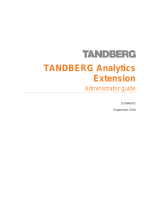
Table of contents
3 55TB Data Warehouse Fast Track Reference Architecture for Microsoft SQL Server 2017 using Dell EMC
PowerEdge R640 and Dell EMC PowerVault ME4024 | 3918-RA-SQL
Table of contents
Revisions............................................................................................................................................................................. 2
Acknowledgements ............................................................................................................................................................. 2
Table of contents ................................................................................................................................................................ 3
Executive summary ............................................................................................................................................................. 4
1 Microsoft SQL Server 2017: Data warehousing with improved column-store technology ........................................... 5
1.1 Dell EMC Data Warehouse Fast Track reference architectures for SQL Server 2017 ...................................... 5
2 Recommended reference architectures ....................................................................................................................... 6
2.1 Single-server reference architecture .................................................................................................................. 6
2.2 Highly available reference architecture .............................................................................................................. 8
3 Hardware components ............................................................................................................................................... 10
3.1 PowerEdge R640 server .................................................................................................................................. 10
3.2 QLogic QLE2662 16Gbps host bus adapter .................................................................................................... 10
3.3 PowerVault ME4024 array ................................................................................................................................ 10
4 Storage configuration ................................................................................................................................................. 12
4.1 Cabling .............................................................................................................................................................. 12
4.2 Storage pools .................................................................................................................................................... 12
4.3 Host setup ......................................................................................................................................................... 13
4.4 ME4 Series volumes ......................................................................................................................................... 13
5 Server configuration ................................................................................................................................................... 15
5.1 System BIOS .................................................................................................................................................... 15
5.2 Host bus adapters ............................................................................................................................................ 15
6 Windows Server 2016 configuration .......................................................................................................................... 16
6.1 Power plan ........................................................................................................................................................ 16
6.2 Lock pages in memory ..................................................................................................................................... 16
6.3 Windows volumes ............................................................................................................................................. 16
6.4 MPIO ................................................................................................................................................................. 17
7 SQL Server 2017 Enterprise Edition configuration .................................................................................................... 18
7.1 Grant perform volume maintenance task privilege ........................................................................................... 18
7.2 SQL Server maximum memory ........................................................................................................................ 18
7.3 Max degree of parallelism (MAXDOP) ............................................................................................................. 18
7.4 Resource governor ........................................................................................................................................... 18
7.5 Database configuration ..................................................................................................................................... 18
7.6 Tempdb configuration ....................................................................................................................................... 18
8 Additional considerations for the highly available reference architecture .................................................................. 19
9 DWFT for SQL Server 2017 certification .................................................................................................................... 20
10 Summary .................................................................................................................................................................... 21
A Technical support and resources ............................................................................................................................... 22






















